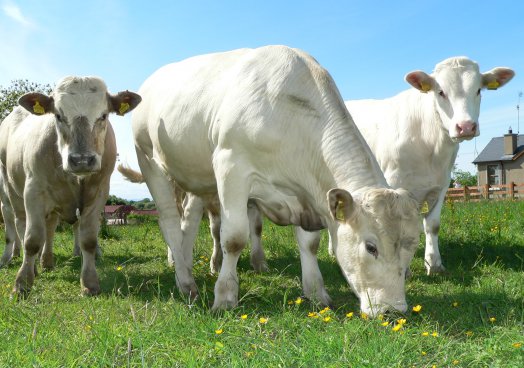
The Ulster Farmers’ Union has submitted its formal response to the independent TB Strategic Partnership Group (TBSPG), outlining the UFU’s views on the group’s interim report on the eradication of bovine tuberculosis. For over 60 years, bovine TB has proved a complex and costly disease and the focus of the TBSPG is on a practical strategy, with a realistic time scale and resources to eradicate TB from the cattle population.
Following a major internal consideration of these proposals, at this stage, the UFU would be against pre-movement testing. Based on the current accuracy of the TB test, it feels this would be ineffective, while adding inconvenience and cost for farmers. The UFU would however support farmers with restricted herds notifying DARD if animals are moved over longer distances. This would help protect uninfected farms. Farmers would however need assurance that this would not add to an animal’s number of herd movements which could reduce its eventual value. “We recognise that movement notifications of animals from infected herds would protect the wider industry. But without access to more information on typical animal movement distance and frequency, we would suggest a larger distance is used to see how such a protocol would work and then gradually reduce the range,” said UFU president Ian Marshall. “This would allow DARD time to identify and fix flaws and give farmers time to restructure land they are renting in anticipation of the changes,” he said.
The UFU says it sees merit in herd risk status information being made available to allow farmers to make more informed buying decisions. “However, we believe this may be more appropriate later in the disease control programme. If imposed at the current level of TB incidence it could lead to a situation where some farmers are unable to sell stock, and with no funding available to compensate them for their loss,” said Mr Marshall.
After a widespread consultation with its farmer members the UFU says the industry cannot accept any reduction in the compensation levels paid and would be against forced changes to bio-security, or linking this to compensation. “Over the last three years, Northern Ireland has been able to successfully remove brucellosis from cattle. This suggests our on-farm bio-security is robust enough to prevent disease spread, and it should be equally robust when it comes to bovine TB,” said Mr Marshall, adding that any failure of bio-security must be seen as further evidence of TB in wildlife acting as a local reservoir.
The most fundamental issue for the Union is however the issue of tackling TB in both cattle and wildlife. In the Republic of Ireland, significant progress has been made by focusing on the control of TB in wildlife and by the introduction of better testing methods. “We would certainly be in favour of the targeted removal of infected wildlife in hot spot areas,” said Ian Marshall. He said this could be applied to areas where two or more neighbouring farmers have had a breakdown, areas of persistent/repeat infection and in breakdowns in closed herds where wildlife must have played a part. “In relation to the vaccination of wildlife, while we are not opposed, we believe it has yet to be proven that this is cost effective or reduces TB incidence,” he said, adding that on that basis the UFU would withhold judgement until the results of the TVR study are available. “Once DARD has proven it is willing to take robust action in TB infected wildlife, farmers may then be willing to consider one of the other proposals to help fund the eradication programme by contributing towards the cost of one annual herd test,” said Mr Marshall.
To view the UFU response see: consultation response




